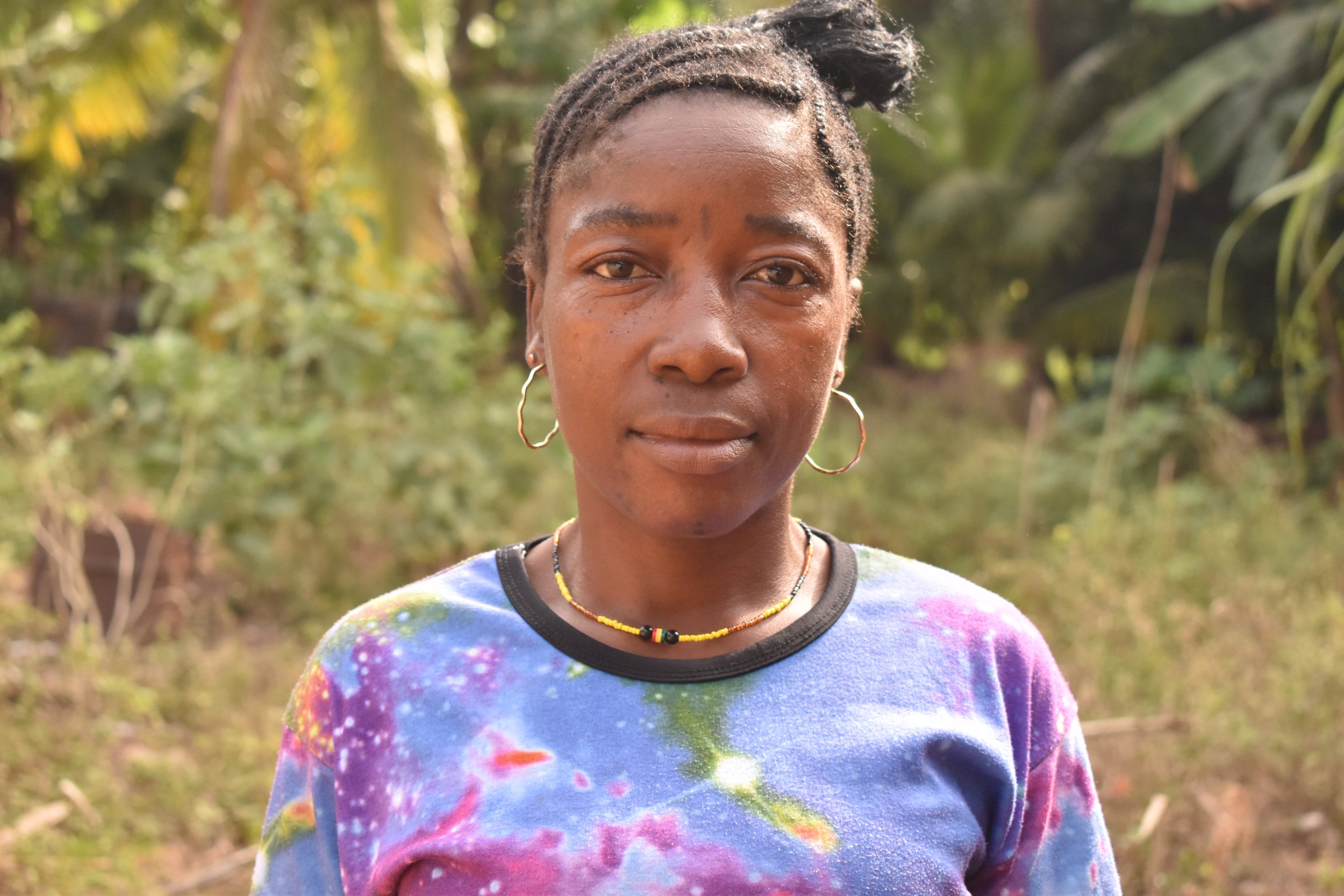Strengthening Community Leadership with Women and Youth
Originally told by Baindu Samu
Written and translated by Nyagajia M.S Rogers, Community Action Program Supervisor, and James Gendemeh, Monitoring, Evaluation & Learning Officer
Majoe is a small community with a total population of about 480 people that is located in Eastern Sierra Leone. Despite the rise in support for women’s empowerment in the world, co-existence between women and traditionally male village leadership in many communities in Sierra Leone is frayed. The leadership system in Majoe displayed an unfair governance and social discriminations against woman. Baindu Samu, a 30-year-old community member is one of those that went through this repressive and non-transparent leadership system. Because of this tension and being shunned, the women contributed less to the development of their community. Only male leaders were regarded as heads in all affairs. The two female leadership positions (women’s leader and vice) still had a stereotype of male supremacy over female leadership.
Women, considered as weak, were not allowed to take part in community decision making. Feedback from the chiefdom meetings attended by the male leaders remained treated as sacred. Verdicts were given in favor of men in terms of domestic conflict. “If a woman is given rights over her husband, it is considered a taboo. This, according to tradition, is deemed a curse upon the children,” Massah Nyandebo, the Women’s Leader stated. There was no specific amount of fines levied for crimes and conflict in the community; this was the reason for presiding over cases in the homes of those engaged in conflict or the homes of the leaders. Just like the fines, community contributions were collected on an unequal basis.
The tipping point for leaders transpired with OneVillage Partner’s intervention in 2016 during a community meeting. In the meeting, the OneVillage Partners staff noticed less attendance and participation of women and the youth in the exercise. In one of the trainings, the staff emphasized the inclusion of everyone in community development. After the training sessions were completed, certain leaders summoned a community meeting. In this meeting, they recognized and appointed two women to co-lead and facilitate the deliberations. The outcome of this meeting inspired the general leadership and the community to value collectiveness, and encouraged women and youth to take active roles in the running of their community. The leaders decided to give up their non-transparent structure of governance. ‘’The inclusion and recognition of women and all, regardless of age, status, and cultural background in the decision and planning of a community leads to a collective and sustainable development,” Baindu said.
Driven to bring change in Majoe, leaders decided to incorporate anyone who want in decision-making and community meetings. In a community gathering, they submitted their regret for their actions, and ill-treatment towards their fellow community members. This circumstances prompted them to discourage the holding of multi community functions. Delegating responsibilities started quickly thereafter, and women began to serve as delegates in the chiefdom meeting and share feedback from the meetings. Additionally, cases were now presided in the open, and additional leadership positions were given to ordinary community members. This sudden development inspired other youth and women to volunteer for community work, and supported their leaders for a unified and peaceful co-existence in Majoe.
Although these initiatives proved successful by ensuring an environment that motivated women and youth to participate greatly in development, some leaders were reluctant in accepting these changes at first. Some stopped attending chiefdom meetings because they did not want to share feedback from the meetings. Disagreements erupted between male leaders; some wanted to continue to rule the old way. These circumstances were surmounted through re-enforcing efforts in sensitizing authorities and the general community on the role of women and youth in community development. In addition, the two female leaders initially found it difficult to work with the male leaders, the male leaders thought the women did not have the ability to think and act like men.
But after series of contemplations and engagements, the leaders decided to incorporate women and other community members in decision-making at all community meetings. “I was given the opportunity for the first time since my administration to appoint colleague women to help in the running and development of the community”, Massah Nyandebo, the Women’s Leader stated. Unlike before, youth and women are now encouraged to attend all meetings, and now enjoy a new phase of leadership and development.
Finally, there are close working relationships between leaders and the general community; they have increased awareness on their roles and responsibilities for the development of Majoe. “A successful community should incorporate women and all for its growth,” Hawa Lahai the women’s vice leader said. Both male and female leaders in Majoe now provide sound representation within and outside their community. Because of this, there is increased presence of women and youth in leadership roles, which has encouraged a high level of community participation in development activities. The community members agreed on a specific fine and punishment for cases of theft, marital conflict, and the use of abusive and derogatory language. The leaders now create room for suggestions and opinions from other community members, and the women now oversee community contributions for development work. “Now, I have come to the understanding that OneVillage Partner’s work is not limited to the building of physical projects for the community, but as well impacting knowledge and power through trainings and meetings for the governance and development of communities,” Hawa Lahai, the women’s vice leader added.

